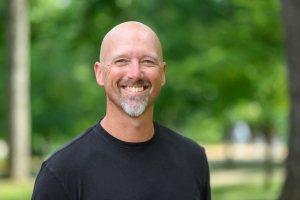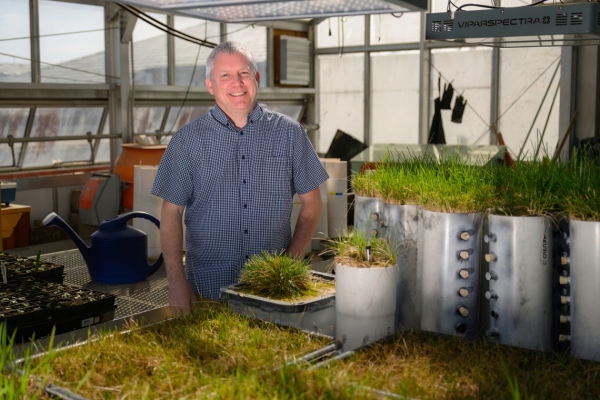
W&L Professor Receives the 2023 Portion of Multi-Year Grant from the U.S. Department of the Interior Bill Hamilton will utilize the grant to fund his ongoing research on ecosystem health in Yellowstone National Park.
Bill Hamilton, professor of biology at Washington and Lee University, has received the 2023 portion of a multi-year grant through the United States Department of the Interior, the government agency that oversees the National Parks Service (NPS).
The grant is a result of a partnership between the National Parks Service and the Cooperative Ecosystem Studies Unit (CESU) that allows for a 10-year relationship that first began in 2020 after completing a previous five-year agreement with the NPS. The 2023 portion of Hamilton’s grant amounts to $13,536.
“My students and I are fortunate to work in the world’s first National Park on the only migratory herd of bison in North America,” Hamilton said. “We contribute data important for management decisions, as well as ecological knowledge.”
Hamilton will use the funds to continue his ongoing research that recently has focused on arthropod diversity and its connection to the soils and nutrients within an ecosystem. He has been conducting ecosystem research in Yellowstone National Park since 2005, extensively studying the effects that grazing herds (particularly bison) may have on the soils and grasslands.
Each year, Hamilton selects 3-4 W&L students to join him in collecting data to measure soil health, plant growth, grazing intensity and plant community composition in the northern grasslands of Yellowstone. This summer, Hamilton will be joined by W&L students Evan Robyns ’25, Vanshika Sood ’25 and Connor Lafo ’26.
Hamilton and his students will work in conjunction with NPS Biologist Chris Geremia, the foremost authority on Yellowstone’s bison herds. Students from Hamilton’s Plant Functional Ecology Spring Term class also made the trek to Yellowstone this month, while an additional 5-8 students continue to process the collected samples each semester.
“This year’s field season we will be shifting focus on quantifying how much carbon can the grassland soils of Yellowstone National Park can store,” Hamilton said. “Soil carbon is vital for maintaining grassland productivity. In addition, proper management of grazing can also store carbon from human combustion of fossil fuels that can potentially mediate future climate change.”
Hamilton, who serves as the chair of the Department of Biology, has been a member of the W&L faculty since 2001. He earned a bachelor’s degree in biology from Syracuse University, a master’s degree in chemical ecology from State University of New York at Buffalo and a doctorate in ecology from Syracuse.
If you know a W&L faculty member who has done great, accolade-worthy things, tell us about them! Nominate them for an accolade.
 Bill Hamilton, professor of biology
Bill Hamilton, professor of biology
You must be logged in to post a comment.